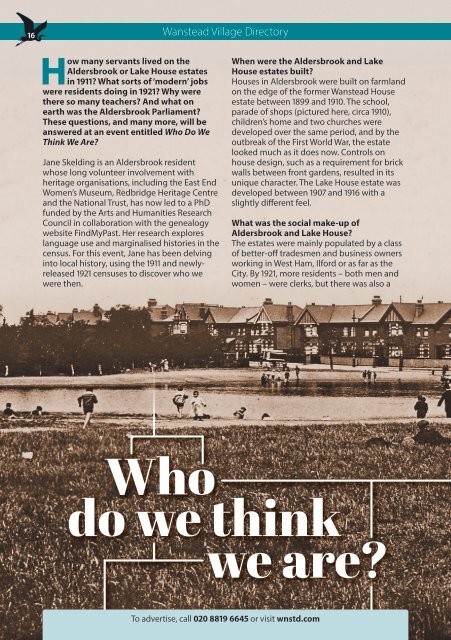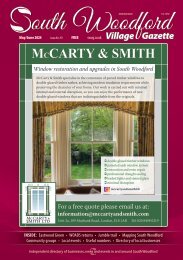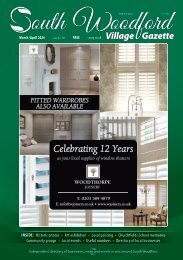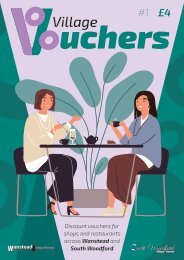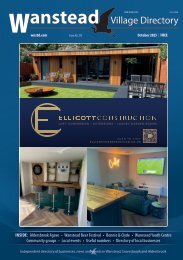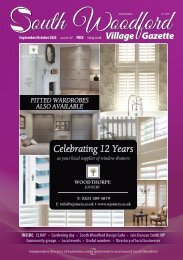November 2023
You also want an ePaper? Increase the reach of your titles
YUMPU automatically turns print PDFs into web optimized ePapers that Google loves.
16<br />
Wanstead Village Directory<br />
How many servants lived on the<br />
Aldersbrook or Lake House estates<br />
in 1911? What sorts of ‘modern’ jobs<br />
were residents doing in 1921? Why were<br />
there so many teachers? And what on<br />
earth was the Aldersbrook Parliament?<br />
These questions, and many more, will be<br />
answered at an event entitled Who Do We<br />
Think We Are?<br />
Jane Skelding is an Aldersbrook resident<br />
whose long volunteer involvement with<br />
heritage organisations, including the East End<br />
Women’s Museum, Redbridge Heritage Centre<br />
and the National Trust, has now led to a PhD<br />
funded by the Arts and Humanities Research<br />
Council in collaboration with the genealogy<br />
website FindMyPast. Her research explores<br />
language use and marginalised histories in the<br />
census. For this event, Jane has been delving<br />
into local history, using the 1911 and newlyreleased<br />
1921 censuses to discover who we<br />
were then.<br />
When were the Aldersbrook and Lake<br />
House estates built?<br />
Houses in Aldersbrook were built on farmland<br />
on the edge of the former Wanstead House<br />
estate between 1899 and 1910. The school,<br />
parade of shops (pictured here, circa 1910),<br />
children’s home and two churches were<br />
developed over the same period, and by the<br />
outbreak of the First World War, the estate<br />
looked much as it does now. Controls on<br />
house design, such as a requirement for brick<br />
walls between front gardens, resulted in its<br />
unique character. The Lake House estate was<br />
developed between 1907 and 1916 with a<br />
slightly different feel.<br />
What was the social make-up of<br />
Aldersbrook and Lake House?<br />
The estates were mainly populated by a class<br />
of better-off tradesmen and business owners<br />
working in West Ham, Ilford or as far as the<br />
City. By 1921, more residents – both men and<br />
women – were clerks, but there was also a<br />
Who<br />
do we think<br />
we are?<br />
To advertise, call 020 8819 6645 or visit wnstd.com


